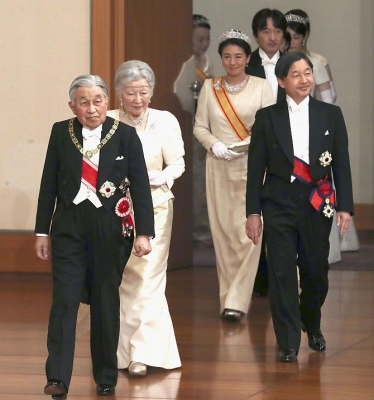
Since World War II, a Japan emperor’s role has been mostly ceremonial. The Japanese constitution, largely drafted by the United States and adopted in 1947, considers the emperor as “the symbol of the State and of the unity of the people.”
The Japanese monarch does not have a political function. The governance of the country is carried out by the democratically-elected Parliament. However, there are certain duties vested with the emperor. Based on cabinet decisions, he convenes the National Diet, which us Japan’s legislature, and appoints the prime minister. He also promulgates laws approved by the Diet.
- Akihito abdicated in April 2019, due to failing health. He was monarch to do so in more than 200 years. He underwent a surgery for cancer in 2003 and a heart bypass operation in 2012. He expressed his desire to step down in 2016 citing ill-health. In 2017, Japan’s parliament enacted a law that made his abdication possible.
- Akihito was one of the most popular emperors among his people. Emperor Akihito helped repair Japan’s post-war reputation.
- Akihito was also the first Japanese Emperor to marry a commoner.
Picture Credit : Google
